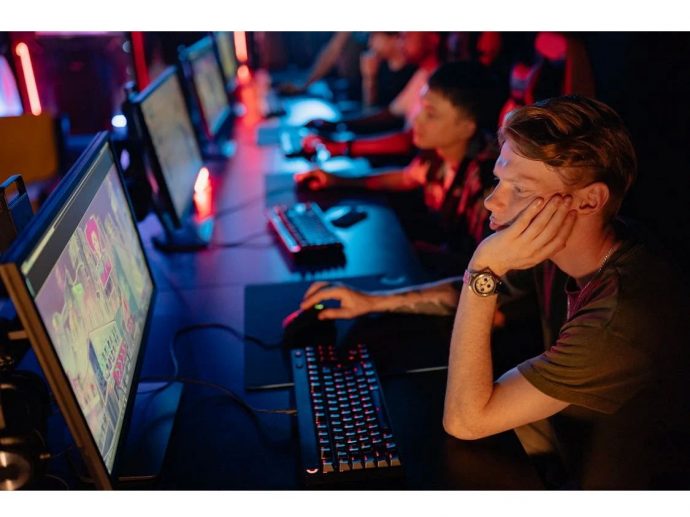Categories more
- Adventures (17)
- Arts / Collectables (15)
- Automotive (37)
- Aviation (11)
- Bath, Body, & Health (77)
- Children (6)
- Cigars / Spirits (32)
- Cuisine (16)
- Design/Architecture (22)
- Electronics (13)
- Entertainment (4)
- Event Planning (5)
- Fashion (46)
- Finance (9)
- Gifts / Misc (6)
- Home Decor (45)
- Jewelry (41)
- Pets (3)
- Philanthropy (1)
- Real Estate (16)
- Services (23)
- Sports / Golf (14)
- Vacation / Travel (59)
- Watches / Pens (15)
- Wines / Vines (24)
- Yachting / Boating (17)
The Science of Luck: Separating Myth from Reality in Online Sports Gaming
Published
02/18/2025Since the inception of competitive gaming and sports prediction platforms, there has been a constant debate among enthusiasts about whether success comes down to skill or luck. It's a trick question, honestly.
There is no way to deny that randomness indeed influences outcomes. After all, no one can control a last-minute injury, an unexpected referee call, or an underdog pulling off an upset. However, understanding how probability works can give dedicated players a meaningful edge in the long run.
Sports gaming is a cultural phenomenon in several countries around the world. According to the latest report, Americans alone have staked almost $500 billion on sports gaming activities in the past year, demonstrating both its popularity and the deep fascination with predicting outcomes.
The intersection of probability, psychology, and strategy makes it a compelling space where skill and luck intertwine in ways that aren’t always obvious.
In this article, we’ll break down how randomness works in online sports gaming and explore the tussle between chance and strategy.
What is Luck: Probability vs. Perception
At its core, probability represents the mathematical likelihood of specific outcomes occurring within a defined system. In online gaming, each event exists within a probability distribution that can be quantified. What many gamers mistake for "luck" is simply the manifestation of these probabilities playing out in real time.
Every outcome follows statistical principles, but people tend to see patterns where none exist.
This phenomenon is popularly known as gambler’s fallacy—believing that if an event happens frequently in a short span, the opposite is “due.” For example, if a team has lost several games, many assume a win is imminent. In reality, each event is independent.
Then there’s the hot-hand fallacy, where winning streaks are mistaken for momentum rather than statistical clusters. Understanding implied probability—how odds reflect the likelihood of an event—helps counter these biases. For instance, if a pick has +200 odds, the implied probability is 33.3%, meaning it still fails two-thirds of the time.
Skill vs. Chance: Where Does Luck Fit?
Games fall into two broad categories: skill-based and chance-based. Skill-based games allow players to make strategic decisions that directly impact the outcome. In contrast, pure chance-based games operate on random number generators (RNGs), making outcomes unpredictable.
However, even in games where luck plays a role, strategic decision-making can significantly reduce reliance on chance. Factors like understanding probabilities, managing risk, and recognizing patterns help players make better choices. Skilled players use data-backed approaches, bankroll management, and historical analysis to improve their odds over time.
How Top Performers Minimize Luck's Impact
Successful gamers approach their craft systematically by:
- Maintaining disciplined selection criteria even during downturns.
- Tracking their performance with objective metrics.
- Turning to peer discussions and community insights to refine strategies, spot trends, and make more informed decisions.
Speaking of peer-to-peer interaction, having a space to exchange ideas can be a game-changer. If you’re wondering where to start, consider exploring a social sportsbook.
These platforms create a more interactive and competitive environment where players can share insights, discuss trends, and refine their approach through peer-to-peer discussions.
If you’re a complete beginner, choose an app with a solo speculation mode. It lets you test your skills before competing with others, explains Rebet. This gives you room to experiment, spot patterns, and sharpen your instincts. Once you’re ready, you can step into competitive play with a solid strategy, not just guesswork.
Technology and Analytics in Modern Gaming
Modern online gaming has been revolutionized by sophisticated analytical approaches that use big data and machine learning algorithms.
As a result, many apps now provide live statistical analysis that was once available only to professionals. We are referring to instant access to key metrics like team forms, head-to-head records, and injury reports right from your smartphone.
Free analytical tools can help you track line movements and identify value opportunities without requiring advanced mathematical knowledge. Many platforms now visualize complex data through intuitive heat maps and trend graphs that make pattern recognition straightforward, even for beginners.
You can even use player performance trackers to unlock important insights about consistency across different maps and game conditions. Many modern sportsbooks are integrated with automated bankroll management features that help you maintain disciplined unit sizing based on your confidence level and historical performance.
Fortune Favors the Informed
At the end of the day, what separates successful players isn't supernatural luck or secret formulas. It's their relationship with uncertainty itself. By embracing probability as a compass rather than seeking certainty as a destination, you can significantly improve your chances of winning.
Lastly, nothing beats practice and patience, not even luck. So, keep practicing to make every pick a calculated risk rather than an emotional one.















